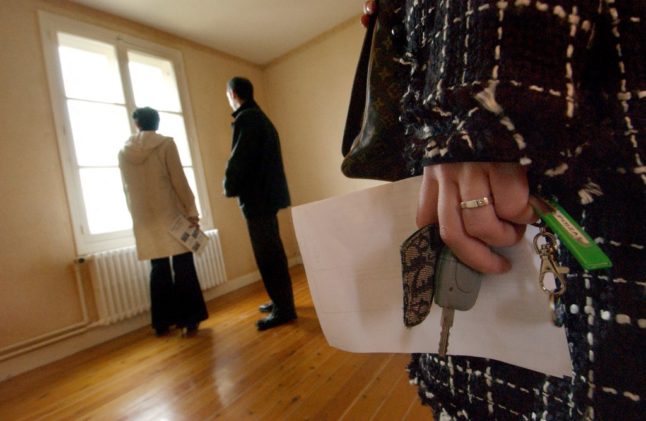Spain’s new housing law (ley de vivienda), pre-approved in mid-April, is a wide-ranging piece of legislation that will affect renters in particular.
Among many changes, it extends a rent cap on existing rental contracts, outlines ‘stressed’ rental areas where prices have risen significantly, and, in a move surely popular with all renters, shifts the responsibility to pay estate agent’s fees away from tenants and onto landlords.
The law, which has seen hundreds of amendments and proven controversial with both opposition parties and landlords associations, has emerged after over two years of painstaking negotiation and contains several substantial changes compared to the original housing bill proposed by Spain’s Council of Ministers in early 2022.
But how will it affect renters?
Rent cap extension
In 2022, faced with relentless inflation, the Spanish government approved a law to prevent annual rent increase in line with the CPI during 2022. In doing so, they set a 2 percent ceiling on increases, which the Spanish Cabinet then subsequently extended into 2023.
Rental prices in Spain are now on average 9.4 percent more expensive than last year, according to data from Idealista, Spain’s leading property experts.
READ ALSO: Rental prices in Spain rise by almost 10 percent in a year
Now this limit will be extended and changed: to 3 percent in 2024 and, from 2025, tied to a newly created index. There are no indications yet as to what the calculation mechanism will be for this index, nor what the cap could be, but it seems that this legislation does represent a break from using the CPI as an axis on which annual rent increases are plotted.
“The CPI is eliminated as a reference index for the annual update of the income of contracts,” the text of the law states, clarifying that the “CPI has proven to be an index that can generate huge fluctuations with increases in a matter of months that make rentals more expensive without limit as the renewal of the contracts is indexed to it.”
New contracts
Unfortunately, this rental cap does not apply to new contracts signed, nor those signed after 2019. Rather, the cap on price increases is intended to help tenants in long-term rental arrangements, and applies to the annual contract renewal.
In the case of contracts signed after 2019, uncapped increases can only be applied if the text includes a clause that outlines annual increases, Víctor Palomo, a lawyer at the Centre for Advice and Social Studies (CAES) and the Tenants Union, told Spanish news website 20minutos.
In addition, any increases must be communicated to the tenant “in a credible way, that is, by fax or email,” one month in advance of any proposed changes.
READ ALSO: What changes about renting and buying property in Spain in 2023?
Agency fees
Anyone who has ever rented an apartment will be aware of agency fees and what an extra financial burden and worry they can be. In Spain, agency fees are usually equal to one month’s rent, sometimes more, and fortunately for renters the new law shifts the onus to pay fees onto owners not tenants.
In addition, the law also prohibits increases to fees beyond what is advertised or in the contract, such as forcing tenants to pay expenses for ‘la comunidad‘ community or municipal fees.
READ ALSO: ‘La comunidad’: What property owners in Spain need to know about homeowners’ associations
‘Stressed’ areas
The law also aims to tackle spiralling rental costs in high-demand parts of the country known as ‘stressed areas’.
Local housing administrations will have the power to declare areas ‘stressed’ residential markets and implement action plans to remedy the imbalances in the municipal rental market, which could include freezing or limiting rental prices.
For an area to qualify as ‘stressed’, certain conditions must be met such as the cost of housing in the area (whether mortgage payments or rent and utility bills) surpassing 30 percent of the average net income of households in that area. Similarly, rental prices in relation to the regional CPI increase will also be factored in, though it remains unclear exactly how localised these ‘stressed’ markets would be and if it would be on a municipal or district level.
Specifically, stressed areas must me two criteria: firstly, “that the average burden of the cost of the mortgage or rent plus basic expenses and supplies exceeds 30 percent of the average household income,”; and secondly, “that the purchase or rental price of the home has increased at least 3 points above the CPI in the five years prior to the declaration of stressed area.”
Unintended consequences?
However, despite being a seemingly pro-tenant piece of legislation, experts warn that the new housing law could have unintended consequences that could actually put prices up and hurt renters in the long run.
The uncertainty generated by long-awaited housing reform, which is still awaiting its final approval, will lead some owners to force an increase in rents, according to experts who spoke to elEconomista.es.
One concern is that the rental cap will cause some landlords to sell up, meaning more properties will move from the rental to the sales market and compounding the scarcity of rental properties, reducing overall stock, and driving up prices over time as a result. Another is that some landlords may prematurely end long-standing rental contracts in order to be able sign new contracts and bypass the rental cap.
“The homes that are now in the rental phase are going to increase their prices,” Luis Corral, CEO of Foro Consultores, told El Economista.
“The process of terminating the contract will be accelerated in order to rent at a higher price.”
Mikel Echavarren, CEO of Colliers, warns that the housing law will achieve “the opposite effect of what is declared, for electoral purposes, will radically decrease the supply and, therefore, the market income will be increased.”
“The freezing and intervention of rents will create property ghettos where it is no longer profitable to undertake rehabilitations aimed at increasing their sustainability, since such investments will not be reflected in rent increases under this law.”
Echavarren also stresses that the new regulations also “significantly infringe on private property” by reserving a percentage urban land for social housing. “This experience has already been tried in Barcelona with disastrous results,” he added.
READ ALSO: EXPLAINED: How Spain plans to address its huge lack of social housing



 Please whitelist us to continue reading.
Please whitelist us to continue reading.
Member comments